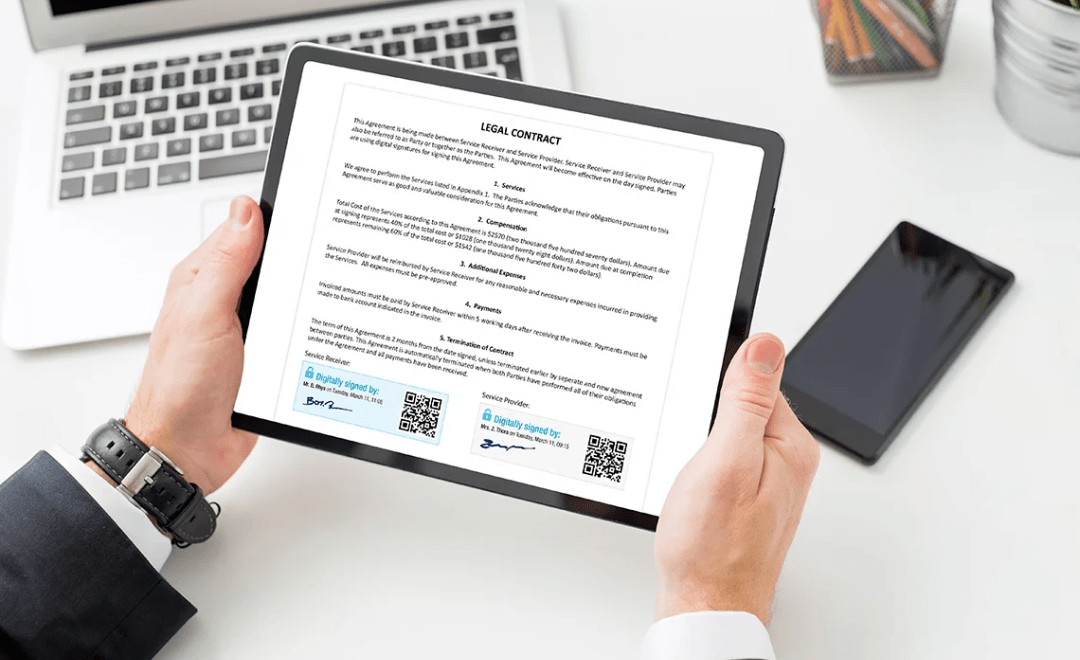Introduction
In the growing landscape of quality assurance and regulatory compliance, the meticulous validation of clean rooms stands as a cornerstone for most industries ranging from pharmaceuticals to electronics manufacturing.
Within this critical process, the implementation of electronic signatures emerges as a key element, reshaping the way validation reports are authenticated and managed. It’s worthwhile to focus right on the significance of electronic signatures in clean room validation reports, exploring their benefits and the broader implications they carry.
In the ever-expanding realm of quality assurance and regulatory compliance, the meticulous validation of cleanrooms stands as a cornerstone for industries ranging from pharmaceuticals to electronics manufacturing. Understanding the importance of cleanroom validation in maintaining pharmaceutical excellence is crucial. For a deeper dive into the critical role cleanroom validation plays within the pharmaceutical industry, you can explore this blog post: Ensuring Pharmaceutical Excellence: Cleanroom Validation.
Ensuring Integrity and Compliance
At the heart of clean room validation lies the assurance of integrity and compliance with stringent industry standards and regulations.
Traditional paper-based signatures, while once commonplace, are increasingly being replaced by their electronic counterparts. This transition isn’t merely a matter of convenience but rather a strategic move to enhance the reliability and security of validation reports.
Electronic signatures offer a robust mechanism for verifying the identity of signatories and ensuring the integrity of the documents they endorse. By leveraging cryptographic techniques and authentication protocols, electronic signatures provide a level of security that surpasses traditional pen-and-paper methods.
This not only bolsters confidence in the validity of validation reports but also strengthens their legal standing in the event of audits or regulatory scrutiny.
Streamlining Workflows and Enhancing Efficiency
In a decade characterized by digital transformation and automation, the adoption of electronic signatures aligns seamlessly with efforts to streamline workflows and enhance operational efficiency.
By eliminating the need for physical signatures and manual paperwork, electronic signatures accelerate the validation process, reducing administrative overhead and mitigating the risk of errors or delays.
Moreover, electronic signatures facilitate real-time collaboration and remote approvals, enabling stakeholders to sign off on validation reports from anywhere, at any time.
This newfound flexibility not only expedites decision-making processes but also accommodates the dynamic nature of modern business operations, where agility and responsiveness are deal breakers.
This transition to electronic signatures isn’t merely a matter of convenience but rather a strategic move to enhance the reliability and security of validation reports. Proper validation practices, coupled with secure electronic signatures, ensure consistent product quality. This blog post explores how proper validation enhances product quality: Beyond Compliance: How Proper Validation Enhances Product Quality.
Fostering Transparency and Auditability
In an environment where accountability and transparency are non-negotiable, electronic signatures offer unparalleled levels of auditability and traceability. Every signature is accompanied by a digital audit trail, documenting the who, what, when, and where of each endorsement.
This not only serves as a deterrent to fraudulent activities but also facilitates comprehensive audits and investigations, empowering organizations to maintain rigorous compliance with regulatory requirements.
Furthermore, electronic signatures provide a mechanism for enforcing role-based access controls and permissions, ensuring that only authorized individuals can endorse validation reports or make amendments.
This granular level of control minimizes the risk of unauthorized alterations or tampering, safeguarding the integrity of the validation process from start to finish.
Future of Digital Assurance
As we are navigating an increasingly digital world, the importance of electronic signatures in clean room validation reports cannot be overstated. Beyond mere technological innovation, electronic signatures represent a paradigm shift in how we authenticate and manage critical documentation, ushering in a future where security, efficiency, and compliance converge seamlessly.
By adopting electronic signatures, organizations can elevate their validation processes to new heights, fostering trust among stakeholders, and demonstrating a steadfast commitment to quality and regulatory compliance.
As we forge ahead into uncharted territories, let us not overlook the transformative potential of electronic signatures in shaping the landscape of cleanroom validation and beyond.
Innovation and Collaboration
The adoption of electronic signatures also opens doors to enhanced collaboration and innovation within the cleanroom validation ecosystem. With digital tools and platforms facilitating secure exchanges of validated reports, stakeholders can seamlessly engage in cross-functional collaboration, sharing insights and best practices to drive continuous improvement.
Furthermore, electronic signatures pave the way for the integration of advanced technologies such as blockchain, enabling immutable record-keeping and enhanced data integrity.
By harnessing the power of distributed ledger technology, organizations can establish tamper-proof audit trails and foster trust among stakeholders, laying the groundwork for a future where transparency and accountability reign supreme.
In a nutshell, the importance of electronic signatures in clean room validation reports goes beyond mere convenience; it represents a fundamental shift towards a more secure, efficient, and transparent validation process.
By embracing electronic signatures, organizations can navigate the complexities of regulatory compliance with confidence, forging ahead into a future where innovation and collaboration thrive.
Ushering in a New Era of Validation Excellence
The adoption of electronic signatures in clean room validation reports represents a transformative leap towards a future characterized by enhanced security, efficiency, and transparency.
As we continue to harness the power of technology to drive progress and innovation, let us not underestimate the profound impact that electronic signatures can have on the validation process.
By recognizing the importance of electronic signatures and embracing them wholeheartedly, organizations can pave the way for a future where cleanroom validation is not just a regulatory requirement, but much more.
Safeguarding Data Privacy and Confidentiality
In addition to ensuring compliance and streamlining workflows, electronic signatures also play a crucial role in safeguarding data privacy and confidentiality. Clean room validation reports often contain sensitive information pertaining to proprietary processes, intellectual property, and regulatory compliance.
Electronic signatures provide a secure means of authenticating the identities of individuals endorsing these reports, thereby minimizing the risk of unauthorized access or data breaches.
By implementing robust encryption mechanisms and access controls, organizations can ensure that sensitive information remains protected throughout the validation process, safeguarding their competitive advantage and preserving trust with stakeholders.
Furthermore, electronic signatures enable organizations to enforce strict data retention policies and access restrictions, ensuring that only authorized personnel have visibility into validated reports.
This granular level of control not only enhances data security but also instills confidence among stakeholders, reassuring them that their sensitive information is handled with the utmost care and diligence.
In an age where data privacy and confidentiality are paramount concerns, electronic signatures serve as a linchpin for maintaining trust and integrity in the validation process.
By prioritizing the adoption of electronic signatures, organizations can demonstrate their commitment to protecting sensitive information and upholding the highest standards of data privacy and confidentiality.
FAQs
What are electronic signatures?
Electronic signatures, often referred to as e-signatures, are digital representations of handwritten signatures used to authenticate electronic documents. They serve as legally binding equivalents to traditional handwritten signatures.
Why are electronic signatures important in clean room validation reports?
Electronic signatures play a crucial role in clean room validation reports by ensuring the integrity, authenticity, and compliance of the documents. They provide a secure and efficient method for signing off on validation reports, streamlining workflows, and enhancing auditability.
How do electronic signatures enhance compliance?
Electronic signatures help organizations comply with regulatory requirements by providing a tamper-proof method of documenting sign-offs and approvals. The digital audit trail associated with electronic signatures offers transparency and traceability, facilitating compliance with regulatory standards.
Are electronic signatures legally binding?
Yes, electronic signatures are legally binding in most jurisdictions around the world, provided they meet certain requirements. These requirements typically include the use of cryptographic techniques to ensure the integrity and authenticity of the signature.
What security measures are in place to protect electronic signatures?
Electronic signatures are protected by robust security measures, including encryption, authentication protocols, and access controls. These measures help safeguard the confidentiality, integrity, and availability of electronic signatures, reducing the risk of unauthorized access or tampering.
Can electronic signatures be used for remote approvals?
Yes, one of the key advantages of electronic signatures is their ability to facilitate remote approvals. Stakeholders can sign off on validation reports from anywhere, at any time, using electronic signature platforms, thereby expediting decision-making processes and enhancing collaboration.
How do electronic signatures contribute to data privacy and confidentiality?
Electronic signatures help protect data privacy and confidentiality by ensuring that only authorized individuals can access and endorse validation reports. Robust encryption mechanisms and access controls safeguard sensitive information throughout the validation process, preserving trust with stakeholders.
Are there any limitations or challenges associated with electronic signatures?
While electronic signatures offer numerous benefits, there may be challenges related to regulatory acceptance, technological compatibility, and user adoption. Organizations must carefully evaluate these factors and implement appropriate measures to address any potential limitations or challenges.
What considerations should organizations keep in mind when implementing electronic signatures for clean room validation?
Organizations should consider factors such as regulatory requirements, security standards, user training, and technology infrastructure when implementing electronic signatures for clean room validation. It’s essential to choose a reliable electronic signature solution that meets the organization’s specific needs and complies with applicable regulations.
How can organizations ensure the validity and reliability of electronic signatures in clean room validation reports?
Organizations can ensure the validity and reliability of electronic signatures by implementing robust authentication mechanisms, maintaining comprehensive audit trails, and adhering to best practices for electronic signature management. Regular audits and compliance assessments can also help verify the integrity of electronic signature processes.
About Incepbio
Leveraging its expertise in laboratory practices, quality control, and stringent regulatory compliance, Incepbio offers state-of-the-art clean room facilities and validation services tailored to the unique needs of the biotechnology and pharmaceutical industries.
By providing comprehensive validation support, including environmental monitoring, equipment qualification, and documentation management, Incepbio ensures that clean room facilities meet the highest standards of cleanliness, integrity, and regulatory compliance.
Through its commitment to excellence and innovation, Incepbio empowers organizations to achieve and maintain optimal operational efficiency and regulatory compliance in clean room environments.
Image Courtesy:LinkedIn






